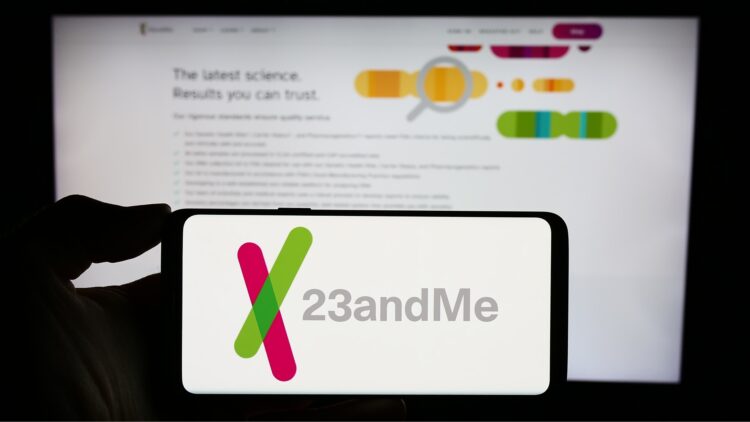The 23andMe bankruptcy filing continues to bring news, but as scary as privacy issues are regarding the sale of personal data that users have entrusted the company with, it is important to remember that these files are not just genetic markers, they have people, entire families behind them, each one with a different story.
Some of the stories behind the 23andMe bankruptcy filing
What would you do if our life was upended as an adult when you found out you were adopted or conceived via donor? This is what happened to Laura Khalil, who, in 2013 submitted a DNA sample to learn more about her Middle Eastern heritage. As she recalls, “23andMe was a really great way to discover a part of myself, a part of my family”.
While in the beginning she did not find anything, that changed five years later when she was contacted by a woman claiming to be her half-sibling. That is when the truth unraveled, her parents had used a sperm donor to conceive her. After the first contact, a door opened up and Khalil discovered nine half-siblings, eight sisters and one brother through 23andMe, form the same sperm donor that her parents had used. Nowadays regulations are more stringent than they were between the late 1970s and 1980s when these babies were conceived, which means that there could be more siblings in the horizon.
But now they will have to find each other some other way, as Khalil just deleted her profile after 23andMe announced they were filing for bankruptcy. She explains “I don’t know what’s going to happen here, and I don’t know who could get their hands on what.”
And she is not alone, The Wall Street Journal reported that the 23andMe login website crashed on Monday night as users rushed to delete their data because of fears that the purchasing company could do anything they wanted with their genetic data. As for the rest of her potential siblings, Khalil is not concerned “So even if there was another long lost sibling that showed up, we figure they’ll find us on Ancestry.”
Another user that is also concerned but is being more cautious is Jackie Vadurro who has a very interesting case. Her DNA helped police crack open a decades-old cold case.
In 2022, a detective from San Diego reached out to Vadurro after discovering that she and a relative had a genetic connection to an unidentified woman found dead by the roadside in 1986. The match had been made through 23andMe, linking them to a 43-year-old victim whose identity had remained a mystery for decades.
With the help of Vadurro’s DNA, authorities confirmed last year that the woman was Maria Pilar Del Gadillo Carrillo. Although the circumstances of her death and the person responsible remain unknown, Vadurro shared with The Independent that she is grateful her genetic information played a role in uncovering long-awaited answers for her family. “They were able to give her her name back, and they were able to exhume her ashes, and her family was able to bury her,” Vadurro stated. “I feel like that’s something just so incredible that happened through, you know, just having my DNA up there.”
Linda Ketchum of Glendale, California is on the unconcerned camp and does not care about another company having access to her genetic data. 23andMe helped her find his father’s relatives after his passing when she was a teenager.
“I know there are potential privacy issues with DNA, but there are privacy issues with most everything we submit to in this modern society, from cell phones right down to online medical record keeping in the health care system. I’m hopeful it will work itself out in the future. AI and other future technologies give me much more pause than DNA technology.”
But experts are warning users to be careful and err on the side of caution and delete their data. California Attorney General Rob Bonta cautioned his constituents “I remind Californians to consider invoking their rights and directing 23andMe to delete their data and destroy any samples of genetic material held by the company.”
Banking him is Arthur Caplan, professor of bioethics at New York University, who told ABC News users need to get their data “out of there.”
“When this company declared bankruptcy, the buyer who comes in doesn’t have to honor any promises that the company made to you or anyone else who might’ve used the site that they’re going to keep your information private,” Caplan said.
Meanwhile, 23andMe is attempting to calm users down by reminding them that there have been “no changes” to their data storage or protection and that any potential buyer would have to respect applicable privacy laws for customer data. Their open letter to their customers read “Our users’ privacy and data are important considerations in any transaction, and we remain committed to our users’ privacy and to being transparent with our customers about how their data is managed.”

